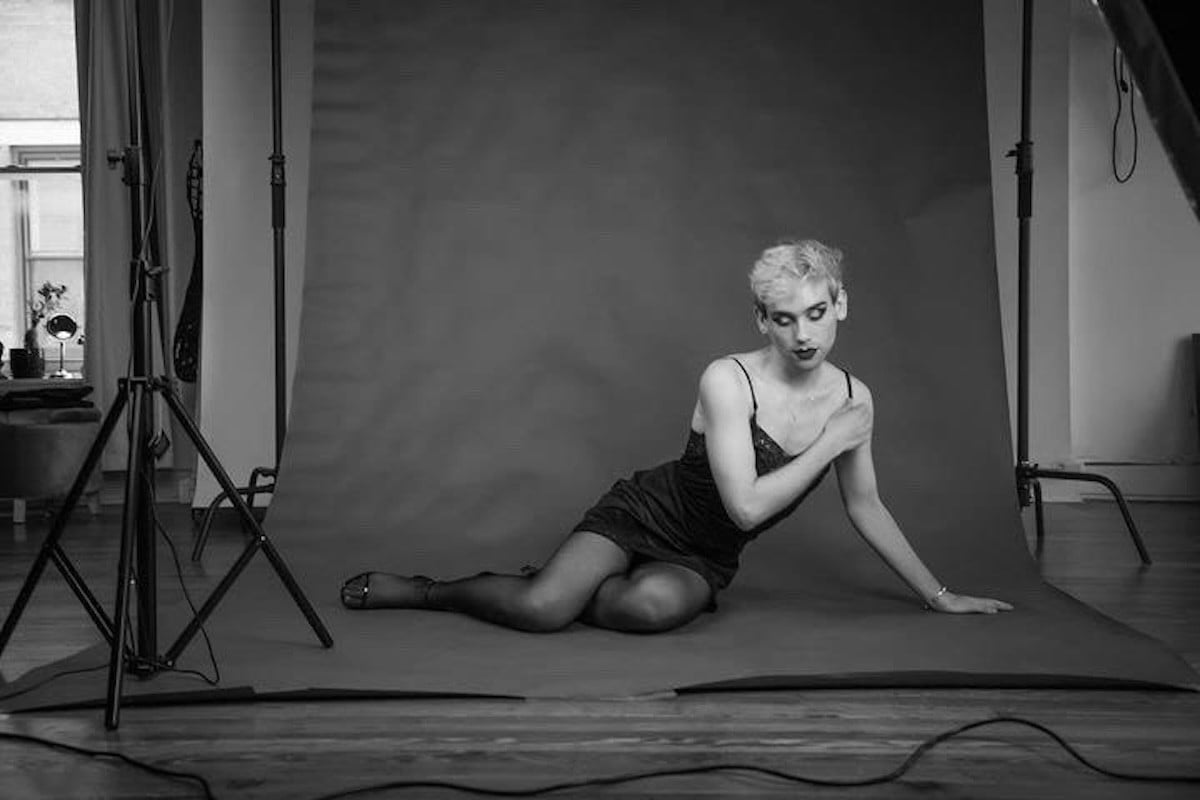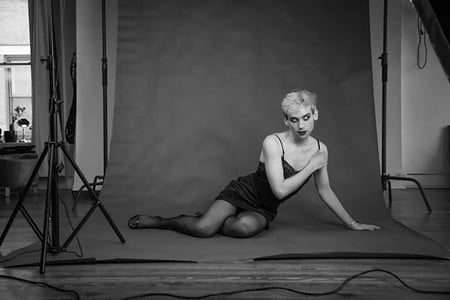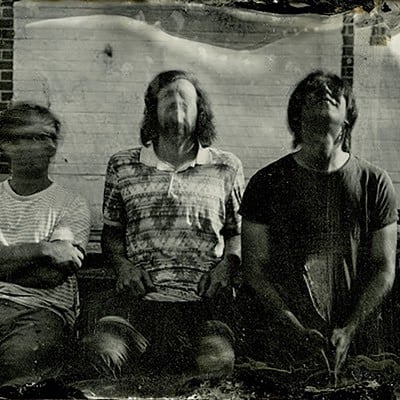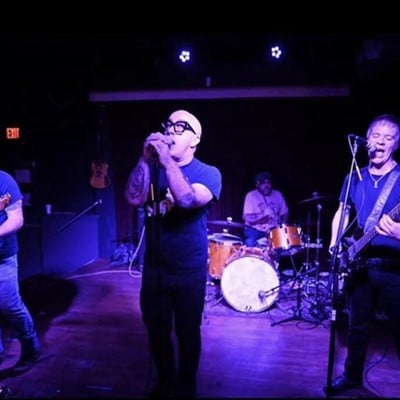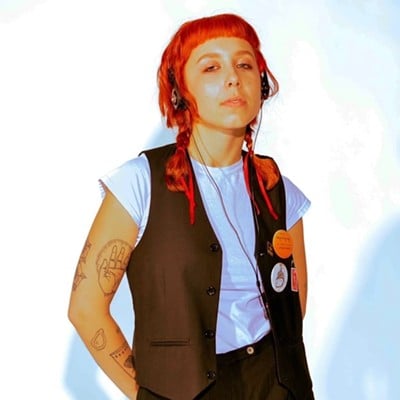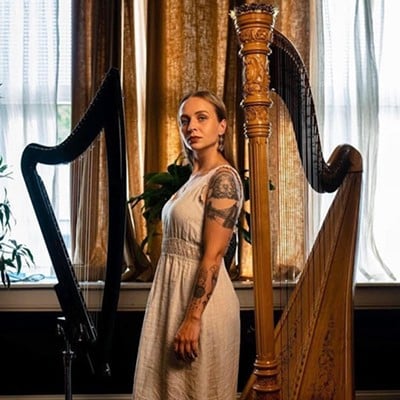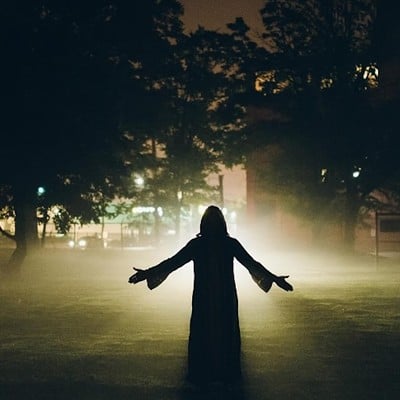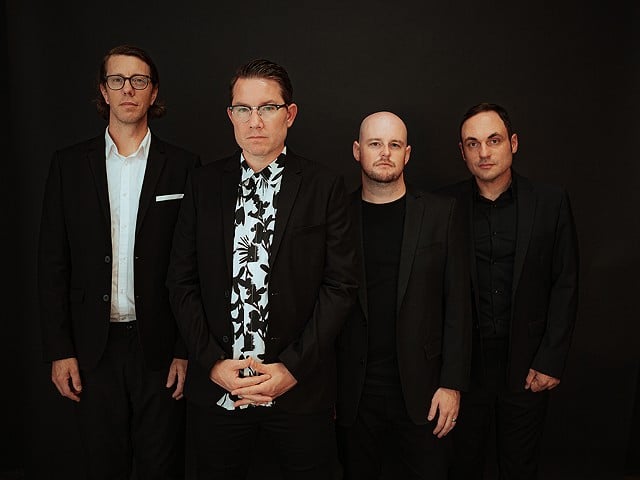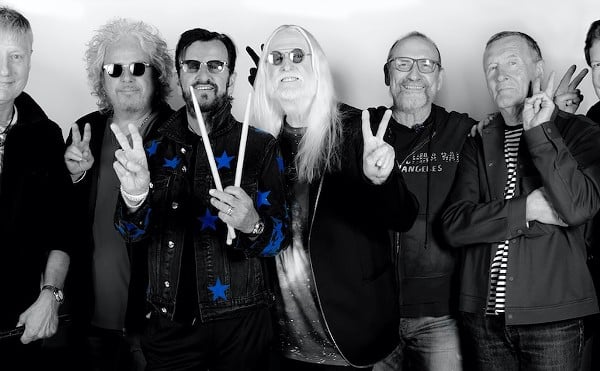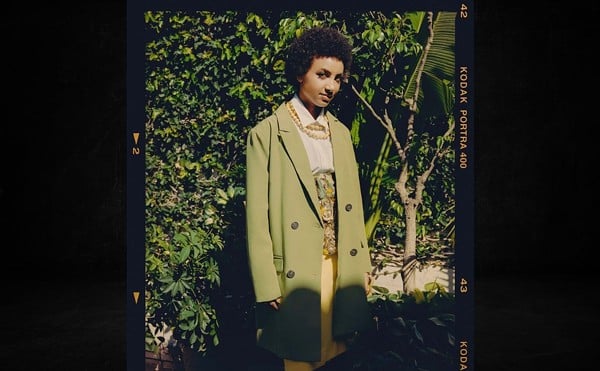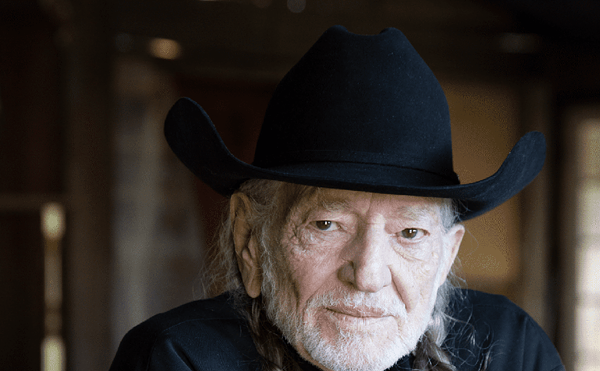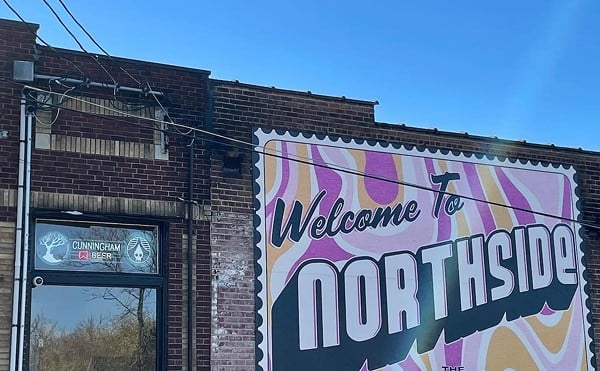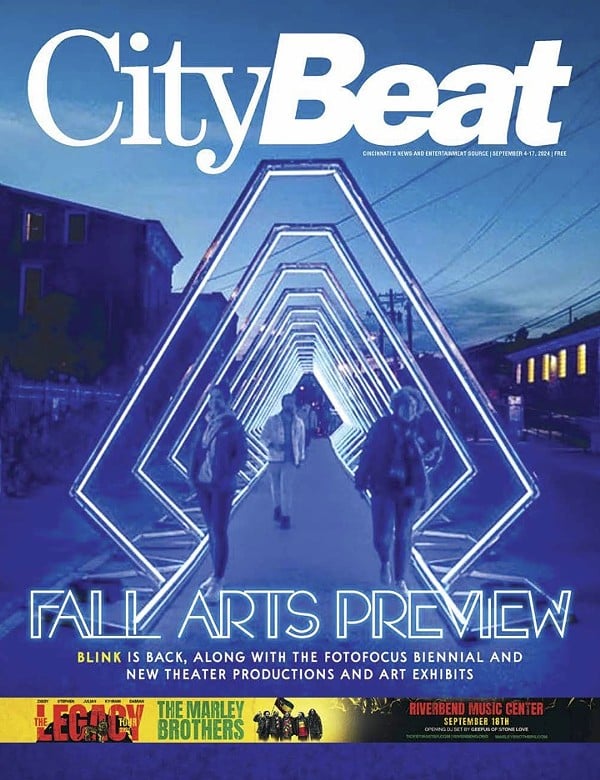Cincinnati nightlife has seen a recent renaissance. New hotspots like Ghost Baby, Somerset and Alice all opened consecutively between early 2020 and 2022, adding a mystique and glamor to a night out in the city, in addition to established bars and spaces acting as dancefloors for a growing club culture. It’s not uncommon to find a line pouring out onto the street, wrapping down the sidewalk for a chance to get inside and experience all that a particular space or night has to offer.
The name DJ Boywife has become synonymous with that rise in Cincinnati club culture. On just about any given night, you can find him looking like a modern-day Warhol Factory-era glam model, at the center of or above a sea of enthusiastic clubgoers having the time of their lives. With his hands in motion, adjusting and perfecting the music, always moving, dancing in time to the variety of custom mixes and hits and a crowd singing along, it’s a picture of a perfect moment in time.
DJ Boywife has a regularly packed schedule of events at venues across the city like Alice, Mecca OTR and LGBTQ+ clubs like The Birdcage and Bloom OTR, in addition to DIY events like a recent rave titled “Sync” at DSGN CLLCTV.
The local club scene didn’t come out of nowhere, though. Josh Heuser, founder and owner of Ghost Baby and co-founder of now-fabled early 2000s club, art experiment and celebrity hangout, Club Clau, weighs in on Cincinnati club history and club culture, in general.
Heuser lists former Covington nightspots like The Glass Menagerie and The Conservatory along with the downtown club, Caddy’s, as well as The Burgundy Room and Vertigo in Clifton as hotspots in the city over the years.
He recalls the ‘90s rave scene-era club The Warehouse and its impact. “But, then when the rave scene (hit), god, you had, where Ghost Baby is now, you had The Warehouse,” Heuser continues, “The Warehouse, you’d go at 18 years old on a Wednesday night and it was club culture. It was just black holes that people went into and full of self-expression. It was in a dangerous part of town, and it was part of the experience.”
He mentions movements in broader club culture such as the Party Monsters and Candy Ravers and era-defining clubs like The Limelight in New York City that created a space for alternative worlds to come together.
“Club culture to me, is about where you’re going to lose your inhibitions but also to express yourself artistically,” Heuser says.
Club Clau, opened by Heuser and co-founder Scott Sheridan in 2003, “was really about just personal creative expression. Like, how can you express yourself for the greater good of the room, making it an experience,” Heuser says.
The ambitious club was only open 18 months but is remembered through photos taken by its art director Andrew VanSickle that captured snapshots of eccentric guests (costumes and characters were encouraged and written about in the club’s weekly blog) and celebrities like Snoop Dogg and Justin Timberlake out on the town in a still very undeveloped Over-the-Rhine.
“Clau [stands for] Change Lies Ahead of Us. I repeat to people all the time, we would sign 18-month leases downtown.” Heuser explains that the city was at a turning point after the 2001 riots caused by the shooting of unarmed Black teen Timothy Thomas.
“It was labeled as this exclusive club,” he says, almost laughing. “Well, it’s exclusive because we were only open 10 p.m. to 2 a.m. Friday and Saturday night because the only people coming downtown were club kids. Your people working 9 to 5 weren’t coming down to Over-the-Rhine at 10 p.m. on a Friday night. Culture happens from 9 to 5, it’s 9 p.m. to 5 a.m., not 9 a.m. to 5 p.m.”
Over-the-Rhine is now a much different place, and the current club culture is as vibrant as ever, with DJ Boywife at the center.
Originally from a small northern Ohio town, or in his words, “I grew up in Uniontown, heard of it? Probably not.” He found music and a subculture of his own through internet culture and being introduced to nightcore (sped-up reworkings of pop songs). He grew frustrated by small-town thinking and says, “I got on Soundcloud and found SOPHIE and then it was over. Then it was like every convention was thrown out.”
He moved to Cincinnati during the pandemic to be with his boyfriend and was soon invited by a longtime internet friend who happened to be a local DJ (DJ Cull) to his going-away party at Northside bar Good Judy’s where he would have a chance meeting.
“So, I went, and this is like 2022, and then that night, the owner pulled me aside and was like, ‘You look like you would be a DJ, you should do it.’ Which, I had never considered it. And so, I would use Spotify and a mixer and then I would, like, fade myself in and out from Spotify (laughs) and it was cool,” he says.
He began, at first, under his name, Shane Brouman, DJing Good Judy’s and its sister bar MixWells with the makeshift setup that worked for a time.
“So, there was an event I thought of called ‘Throb.’ I kind of based it off a Berlin, kind of rave-y, foggy, dark boiler room kind of thing,” DJ Boywife says. “That Throb (event), I was like, ‘I wanna try to be a real DJ.’”
Soon after, he bought a more professional setup and two weeks later was booked to do a punk show at a Clifton house known as The Lawn. DJ Boywife cites those two events as a turning point.
He describes being a DJ as being a “conduit,” similar to his first creative love, film photography. “It is about seeing people in the best light, almost. Where, it’s like, if you’re a good photographer and you show someone that picture, and you’re like, ‘Look how good you look. I did this, this is you and you look great,’ whatever. I feel like DJing is kind of the same thing. Where it’s like, I’m playing songs you like, you’re having these moments with your friends that you’ll remember, you know, brat summer. There’s just something about making good times for people and making memories for other people. That is kind of priceless, I feel like.”
In addition to a regularly packed schedule, he also made recent appearances at TQL Stadium for FC Cincinnati’s Pride Night, Heritage Bank Arena for a Cyclones Pride event, hosted a party at Bogart’s and will appear alongside current Saturday Night Live cast member Marcello Hernandez at Fifth Third Arena on Aug. 23 for University of Cincinnati’s Night of Comedy event.
“It feels like he has a spark of that creator,” Heuser says about DJ Boywife. “I hate to use the word creator because I feel like it’s so overused, more that, I feel he has the desire to have a creative expression for the group, of the evening. Anyone can sit up there and throw their hands in the air and bring sparklers out, but like, when your expression is yourself, and how you present that in a room and it comes through music, then that’s the art of a DJ.”
DJ Boywife tells CityBeat another reward of being in his position. “I feel like there’s something about me that is, like, palatable for straight people but is still true to queer people. It’s not a power but something that I want to use for that group of people that are like, ‘Oh, I feel comfortable going out, I feel comfortable dressing this way or wearing a skirt the way you do,’ or whatever. It’s a really special thing."
While our local club culture is at a recent high, there is still room to grow. “For Pride month, I had 30 gigs in the 30 days of June, right? None of those events were specifically for lesbians or for trans people or for whatever,” DJ Boywife says. He points to Instagram curator/event organizer Midwestern Lesbian and events like the recent Sapphic Swim at Ziegler Park Pool as moves in the right direction but feels there is still more to be done.
Heuser, relishing the former anonymity and experiential hallmarks of club culture says, “I think privacy is the ultimate luxury and I think people used to go out, as I said, to share their self-expressions for the greater good of the room, now people go out with self-expression, for the greater good of the ‘gram.”
Additionally, DJ Boywife, who was an event coordinator for Alice where he booked punk bands alongside club events, mixing two worlds, talks the importance of taking risks, trying new things and making space for new perspectives.
“I respect experience, and I respect people who have been around and, obviously, know more than I do but people should try more. You should try things and fail, and then recoup and see how to make it a better experience.”
Heuser, whose Ghost Baby was named one the best bars in America by Esquire Magazine in 2022 says, “Because where I’m at in my life from a career standpoint and life, I look at a space as a creative piece of artwork that I want you to feel and resonate with the experience. So, I’m way ahead of DJ Boywife where I’m not in the room anymore but I want to create a room where you feel a sense when you go into it, that’s what drives me.”
Nick Keeling, organizer of recent multifaceted dance event “As Above, So Below” held in The Comet basement this month, describes the freedom The Comet allowed to host a heaven-and-hell-themed event that featured a costume contest and décor from local visual artist Sam Jayne, in addition to multiple DJs (including DJ Boywife). “This allows the audience to experience something unique and for the DJs to do whatever they want. It allows experimentation.”
“Our city is growing, which is good, we’re growing in resources, so I think it’s a good time to take a risk and get into a space,” Heuser says. “I think that’s why you’re seeing more and more things pop up because there’s more and more people, and more curiosity."
“Lightning in a bottle happens in some of these spaces.” With the ambition and drive for experience many people have in this city, who knows what the future could bring.
For more information about DJ Boywife, visit instagram.com/djboywife. For more information about Josh Heuser, visit theagar.com.
This story is featured in CityBeat's Aug. 21 print edition.

